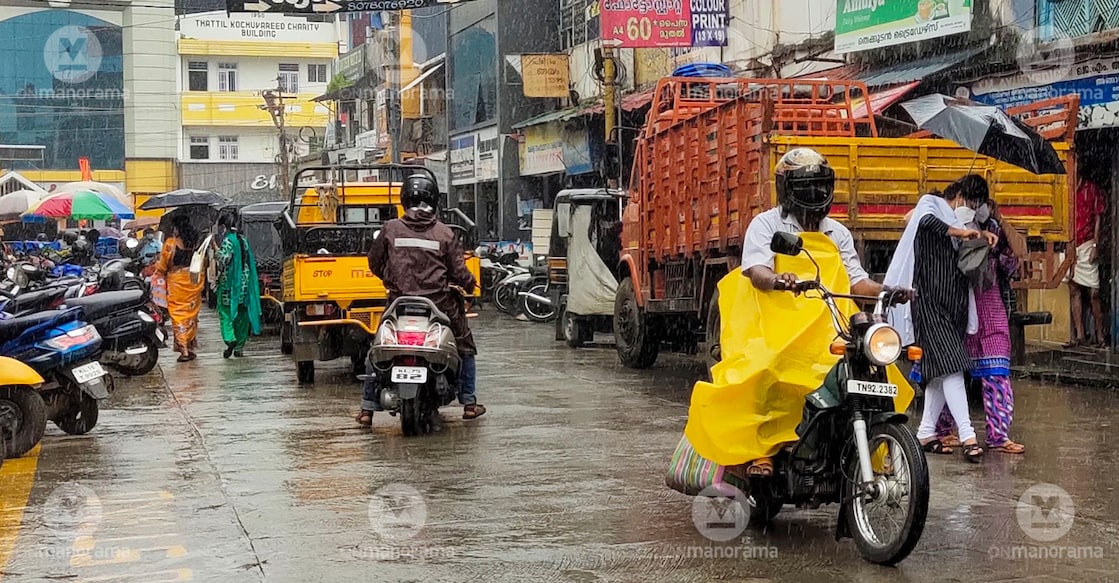Kerala's revised COVID control: TPR dumped, thumbs up for livelihoods, no Saturday shutdown

Mail This Article
After adamantly holding on to a lockdown model based on test positivity rate (TPR), the Kerala government has decided to replace it with a strategy that would favour livelihood pursuits even while finding ways to prevent crowds and intense intermingling of people that could fan the spread of COVID.
All manner of shops, not just those selling essential goods, will be allowed to open on all days, except Sundays. Their working hours, too, could be extended. A change in the weekend lockdown is also expected. Instead of two days, the complete shutdown will be limited to just Sundays.
Increasing suicides and the growing restlessness of the trading community seem to have catalysed the change in the control strategy. There was also the criticism that the controlled opening of shops was only creating larger crowds. The government's decision to keep liquor outlets and bars open on all days, and that too with longer working hours, had already made the controls imposed on other shops untenable.
The decisions were taken at the extended COVID-19 review meeting chaired by Chief Minister Pinarayi Vijayan in Thiruvananthapuram on Tuesday. The Chief Minister will announce the details of the revised COVID control strategy in the Assembly on August 4.
Under the new plan, instead of the TPR, the burden on the health infrastructure in an area - in terms of hospital beds, ventilators and ICUs available - would be the crucial input that would be used to impose controls in an area. There could be strict controls on shops in such micro containment zones.
The revised control plan, which will depend less on TPR, could bring Kerala in confrontation with the Centre. On July 31, Union Health Secretary Rajesh Bhushan had written to states directing that strict controls be imposed on all districts with over 10 percent TPR.
ABCD of a failed strategy
Nonetheless, even the Centre had found ineffective Kerala's model of segregating local bodies into categories on the basis of TPR intensity. On June 16, when the TPR-based lockdown strategy was implemented, the number of local bodies in the 'D' category where the TPR was over 15 percent was 12. Now, in less than two months, the 'D' category local bodies have swelled to 323. The number of 'C' category local bodies, where the TPR is between 10 and 15 percent, has grown from 161 to 355 in the same period.
The TPR-based lockdown method, it was felt, also provided an incentive to local bodies to somehow bring down the TPR, using even unscientific methods. It was alleged that many local bodies had gone for random tests to reduce the TPR instead of the targeted approach that the government had mandated.
TPR model and quick virus spread
Also, the focus of COVID-19 controls in 'D' and 'C' category areas meant that the people's interpretation of relaxations in lower TPR areas bordered on the irresponsible. In 'A' and 'B' category areas it was as if the virus had been slayed.
Such permissive behaviour in relatively safer areas is also why the number of 'D' and 'C' category local bodies increased in a progressive manner. What was 'A' a week ago, thanks to an uncalled for celebration of freedom, quickly darkened to 'C' or 'D' areas. The Chief Minister himself had flagged this issue, and had held this up as reason for persisting with stricter controls.
Just a week ago the Chief Minister had repulsed demands for a change in COVID control strategy saying that all the experts the government had talked to had only glowing things to say about Kerala's strategy. "We don't see any reason to change," he had said.

